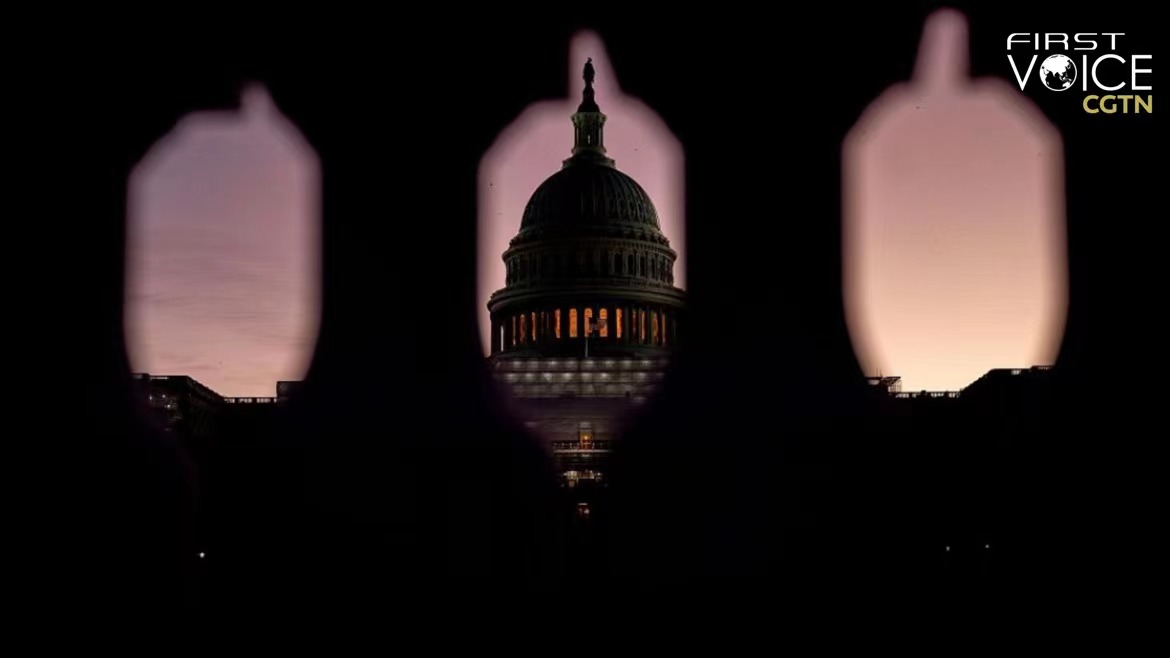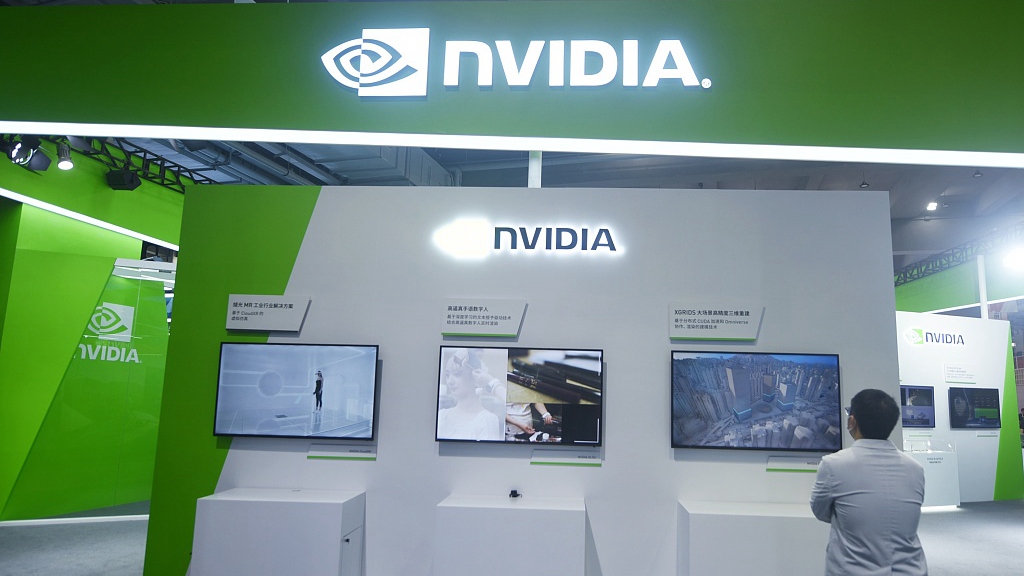
Editor's note: CGTN's First Voice provides instant commentary on breaking stories. The column clarifies emerging issues and better defines the news agenda, offering a Chinese perspective on the latest global events.
The Wall Street Journal reported on June 27 that the Biden administration is considering imposing new restrictions on AI chips export to China. It is said that the Commerce Department could take action early next month to stop shipments of chips manufactured by Nvidia and other chip makers to China without first obtaining a license. The new policy would even ban Nvidia's A800 chips, which was a modified version of the chip made by the company for the Chinese market after its original version was put under export restrictions.
"The administration is likely to wait until after a visit to China by Treasury Secretary Janet Yellen in early July to avoid angering Beijing," WSJ reported based on a source familiar with the situation.
It's only a little over a week since the U.S. Secretary of State Antony Blinken's visit to China and already things seem started to return to where it was. Even though the world held little expectation of a major breakthrough from that visit, it was still hoped that the U.S. would've changed its actions or, at the very least, not undermine the little progress made.
If the United States put the ban in place, whether Yellen visits or not would have little consequences for the China-U.S. relationship. U.S.'s political credibility is already at an all-time low. It has continued to conduct a dual-track approach: On the one side, the administration keeps taking direct actions or allowing the politicians in Congress to make the moves to undermine China's development; On the other, it puts on a show of benevolence and intent for reconciliation, keeps sending its officials to China or meeting with Chinese officials in front of the international press so that this "managing the relationship" image would be captured by the cameras.
The problem is, none of these actions help boaster U.S.'s advantages. Instead, it's weakening it. In an interview with Financial Times, Nvidia chief Jensen Huang said he sees potential for "enormous damage" to U.S. companies if the chip war with China escalates. "If we are deprived of the Chinese market, we don’t have a contingency for that," he said, "there is no other China, there is only one China."

A Nvidia booth at the Hangzhou Computing Conference in east China's Zhejiang Province, October 20, 2021. /CFP
A Nvidia booth at the Hangzhou Computing Conference in east China's Zhejiang Province, October 20, 2021. /CFP
It's a very dangerous path to walk down for a country that's projected to be in recession soon. On the same day WSJ broke the chip restriction story, CNBC reported that HSBC Asset Management said that the United States will enter a downturn in the fourth quarter and a "year of contraction and a European recession in 2024." "We are already in a mild profit recession, and corporate defaults have started to creep up too," said Joseph Little, the global chief strategist at HSBC Asset Management.
The extreme politicization of the China-U.S. relationship is dragging down the most important bilateral diplomatic tie of this century. Just recently, Republican presidential hopeful and former U.S. Ambassador to the UN Nikki Haley deemed China as the "most dangerous foreign threat" to the United States since the Second World War, blithely touting her anti-China stance while forgetting (or more likely, deliberately ignoring) the terrorism that struck the United States.
It is an example of the anti-China extremism in American politics. And the Biden administration, despite the initial more positive rhetoric, has been trapped by this force and is catering to it. The continuous assault on the chip industry is only a part of its manifestation. Recently, Republican lawmakers urged U.S. State Department to not renew the China-U.S. Science and Technology Cooperation Agreement, a deal dated all the way back to 1979 when China and the U.S. established diplomatic relations and has been renewed about every five years since then. This wave of political fads is tearing at the foundation of the world's two largest economies.
No one could stay unscathed if the China-U.S. relationship deteriorates. The U.S. needs to be very careful where it put its next step.
(If you want to contribute and have specific expertise, please contact us at opinions@cgtn.com. Follow @thouse_opinions on Twitter to discover the latest commentaries in the CGTN Opinion Section.)